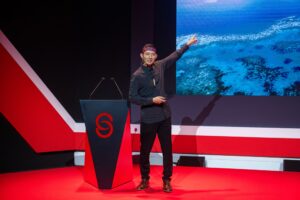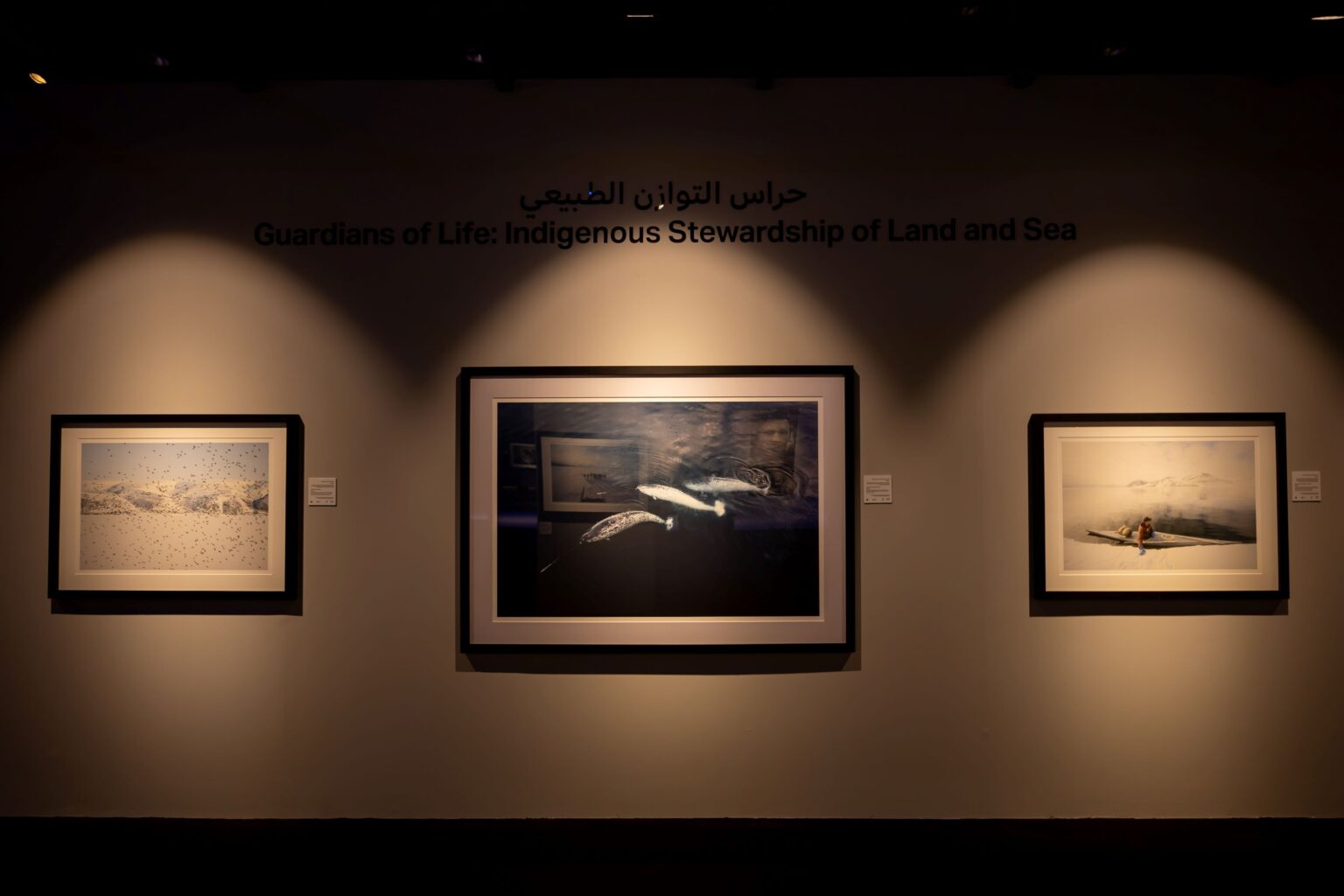Award-winning National Geographic photographer Kilii Yuyan presented ‘Guardians of Life: Caring for Land the Indigenous Way,’ a talk focused on a profound exploration into the symbiotic relationship between indigenous peoples and the environment, at the Xposure International Photography Festival (Xposure 2024), on Thursday. The talk was part of the festival’s third annual Conservation Summit.
Yuyan, who brings a unique perspective shaped by his mixed Chinese and Nanai/Hezhe heritage, delved into the ancient practices of Indigenous stewardship that have preserved the world’s most revered natural sanctuaries – coral reefs of the Pacific, the Amazon lands, the Arctic tundra, Mongolian and Greenland fauna, and Ecuadorian and Australian rainforests – without formal protections.
In Palau, Yuyan showcased how storytelling and traditional knowledge – helped by local governance methods – have created one of the world’s largest marine sanctuaries, helping preserve coral reefs, clams and sharks, as well as the use and preservation of outrigger sailing canoes. “For indigenous peoples, storytelling is in their blood. Palauans have these hardwood carvings which depict their traditional stories and an important one is the story of the Breadfruit Tree. Basically, it’s a message that if you overfish your reefs, you die. If you eat everything on the islands, you die. They’ve learned over thousands of years that you can’t do that. One of the ways in which to remember this is by embedding the stories in the story,” Yuyan said. “When the breadfruit is in season, you don’t catch fish. You don’t fish when there is breadfruit to eat, and you eat breadfruit when breadfruit is in season, giving the fish time to replenish, to recuperate. This is how people pass that deep traditional knowledge, from one generation to the next.”
In Greenland, he showed how traditional practices of hunting and dog sledding form the backbone of an ecological balance that sustains both human and animal life. “The bounty of it equals food for humans and food for dogs. And this is the quintessential pact that an Inuk has with the seal, and one that is extremely indigenous among hunting culture. They see their prey not as being hunted, but as giving itself to you. So when they receive that gift of the seal’s body, in return they have to ensure that there is a place for its grandchildren to exist, that its habitat is kept safe and beautiful.”
In Mongolia, he highlighted how people are trying to fish and cycle their livestock more efficiently in order to ensure they are not overfished and so that grazing lands have ample time to be replenished.
This give-and-take relationship, Yuyan argued, is a model of conservation that recognises the interconnectedness of all life. The photographer also touched on the detrimental effects of colonial interventions that have disrupted indigenous ways of life, such as the collapse of the seal skin trade in Canada and Greenland.
Yuyan’s journey across the globe, from the sacred mountains of Mongolia to the fire-managed woodlands of Australia, is a testament to the power of storytelling in conservation. Through his lens, Yuyan captures the essence of indigenous life and their deep-rooted connection to the land, offering insights into sustainable practices that have thrived for millennia.

